The Stoic art of comparison
Marcus Aurelius, Muhammad Ali, and Michael Jordan
“Never let the future disturb you. You will meet it, if you have to, with the same weapons of reason which today arm you against the present.” — Marcus Aurelius
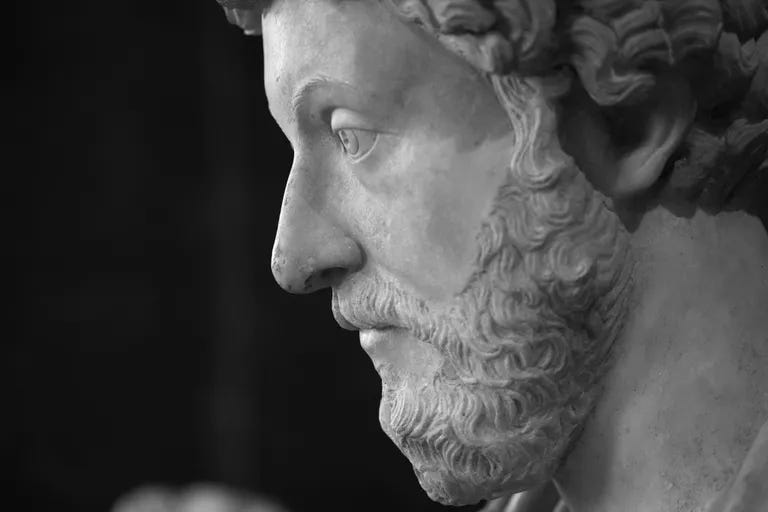
The use of comparison to others has often been derided, one can make their own issues seem small compared to those of others and as such not give it the level of concern that is required. On the other hand, we can place unfair expectations on ourselves, due to the conduct of exceptional individuals in their own difficult times which we believe we should also be capable of displaying.
When writing this piece I thought back to 2021, when I was forced to endure my own specific set of difficulties, which culminated in March of that year with my final set of Fe1 exams. These exams are a mandatory requirement to practice law in the Irish jurisdiction and even in normal circumstances are quite difficult. The consequences of COVID-19, also unfortunately contributed to the stress and difficulty of such.
In the build-up to this exam, I faced several setbacks in a personal sense, however, I remained on top of study and felt quite prepared going into my final set of exams. This changed in the week before my first exam, I got what I believed would be little more than a severe headache. However, it would become a migraine which would go on to last close to three weeks including the entirety of the exams.
This left me unable to study. I struggled to focus my vision, was unable to sleep, and also had a continued and persistent feeling of nausea throughout the exam period. All in all, hardly a winning combination when it comes to the realm of effective study, for exams that are very difficult in nature.
I considered giving up and delaying my sitting until the coming October, fearing that I might fail them and lose my training contract due to this failure (the company I now work with has a three-sitting rule). This would also bring its own added complications, as I was moving abroad during that Summer to engage in a Masters degree in European Law. Which would necessitate either traveling back to Ireland to sit them, including potential quarantines and all that went with it, or another potential online sitting.

This caused me to panic, seeing a plan that I had set out almost a year earlier to work as hard as possible for a year or so to get through the last great hurdle of my potential legal career and then enjoy what was to come. To sacrifice today for tomorrow and begin to see the world return to normality while building a new life for myself in this newly emergent society.
This was a view that I have had for some time and I attribute it to one of my heroes and inspirations Muhammad Ali. This is encapsulated by a quote of his, which appears upon a poster of the great man and is pinned proudly to the wall of my room. I would look upon this image every day throughout the exam period and derive much strength from it.
“I hated every minute of training, but I said, ‘Don’t quit. Suffer now and live the rest of your life as a champion.” -Muhammad Ali
This panic however threatened my otherwise calm and unstressed demeanor during such difficult periods. I feared that I was on the verge of losing everything I had strived so hard to achieve, as fatigue and pain of an internal nature began to finally catch up with me. In such circumstances, our worries and anxiety, lead to a continuing escalation, as one setback creates a chain reaction in which we continue to focus upon external matters and continue to lose control of what truly matters.
Speaking to my friends and family and letting them know that I may not be in the proper condition to get through these exams, left many of them shocked. I had always been able to push myself through such setbacks in the past, but in this instance, many of them for the first time saw that I was capable of being overwhelmed. Their support and high opinions of my resilience and capacity to endure gave me the first spark of spirit that I had felt in some time. Knowing that they believed in me and felt that I could outlast whatever ailment came my way reminded me of Marcus Aurelius and his incredible endurance.
“Don’t be ashamed of needing help. You have a duty to fulfill just like a soldier on the wall of battle. So what if you are injured and can’t climb up without another soldier’s help?” — Marcus Aurelius
This returned me to one of my favorite lectures, which is thankfully freely available on Youtube, that of Michael Sugrue’s discussion of Marcus Aurelius’ contribution to Stoicism and the Western tradition. He conducts a detailed discussion of Aurelius’ character, how he not only wrote a seminal piece in that of the Meditations but also embodied the ideals that he set out. Yet one line in particular from Michael stuck out to me in this instance, that any ideal which is practiced by any individual, is therefore in principle available to all of us.
This forced me to reconsider my opinion on the usage of comparison in getting through our most difficult and trying times. In the past when I looked upon the courage and resilience of the people I admired, whether it was Theodore Roosevelt overcoming illness at an advanced stage of his life to survive his treacherous River of Doubt expedition, Winston Churchill fighting his own demons while holding back the Axis tide or Nelson Mandela enduring his unfair imprisonment with grace and fortitude. It would ultimately lead me to berate my own weakness, even when such weakness is a common aspect of the human experience.
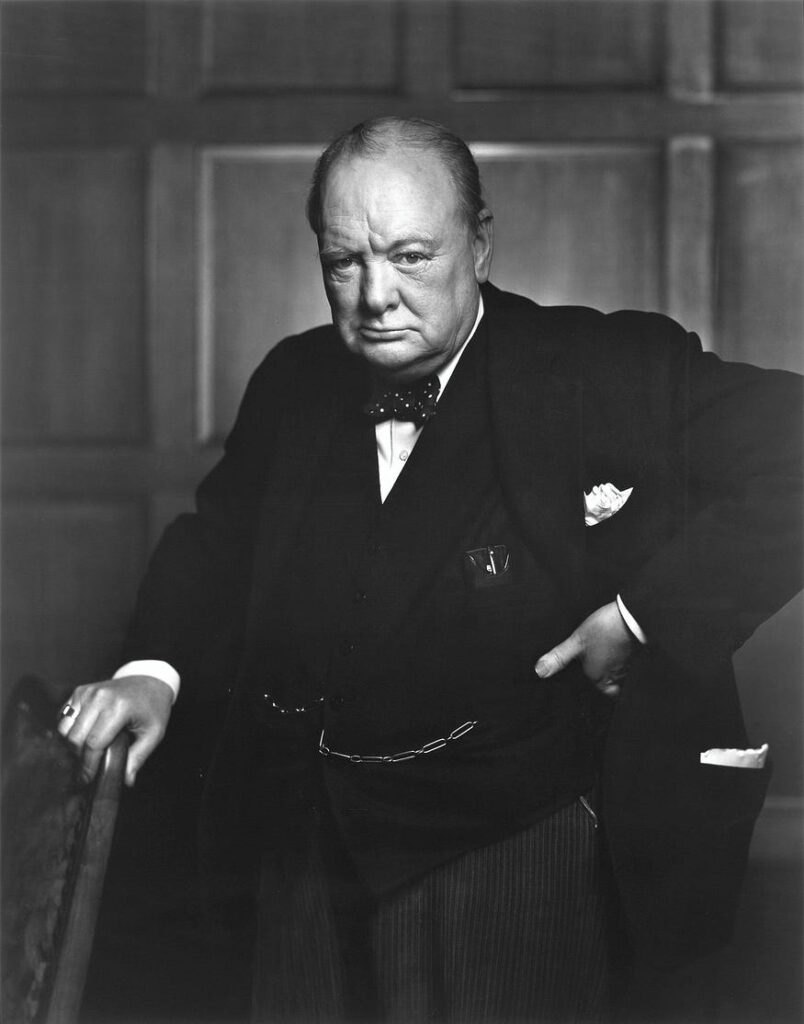
We are very rarely defined by the parts of our lives where we feel strength and vitality pulsing through us and can do what is required of us without any such frailty or fragility of character. Rather the true test of a person lies within their capacity to do what they must, in spite of any inherent weaknesses. Even when we feel incapable of matching the challenge set before us and dread with every ounce of our being the struggle that lies ahead, we do what is required and bear with our own shortcomings as we must.
In my time of weakness, I turned not only to my mentor Marcus Aurelius but also to my great hero Muhammad Ali, and a man I have come to admire since the coronavirus outbreak Michael Jordan. This approach is reflected in Book One of the Meditations wherein, Marcus discusses the characteristics of those around him which he admired and hoped to replicate in his personal development. In an area of stoicism which I had up until this point not practiced in any truly meaningful way.
Ali has always inspired me. Whether it is in refusing to bow to the pressure to adapt our views when we know in ourselves what is the right course. Or in refusing to allow the opinions and predictions of others to define us. Instead forging my own path through my own decisions and the consequences for good or ill which come with them. Going through his interviews in order to muster up the necessary strength to push myself over the line, a particular passage from Mike Tyson stuck with me.
Wherein Iron Mike, admitted the superiority of the man who came before, allowing that he behaved in such a way that made others believe he was in fact the strongest meanest man who ever lived. Yet Ali truly embodied this inner strength, whereby the power of his convictions allowed him to never bow to his circumstances or challenges, and as Mike noted you would have to kill him to ever truly destroy his spirit.
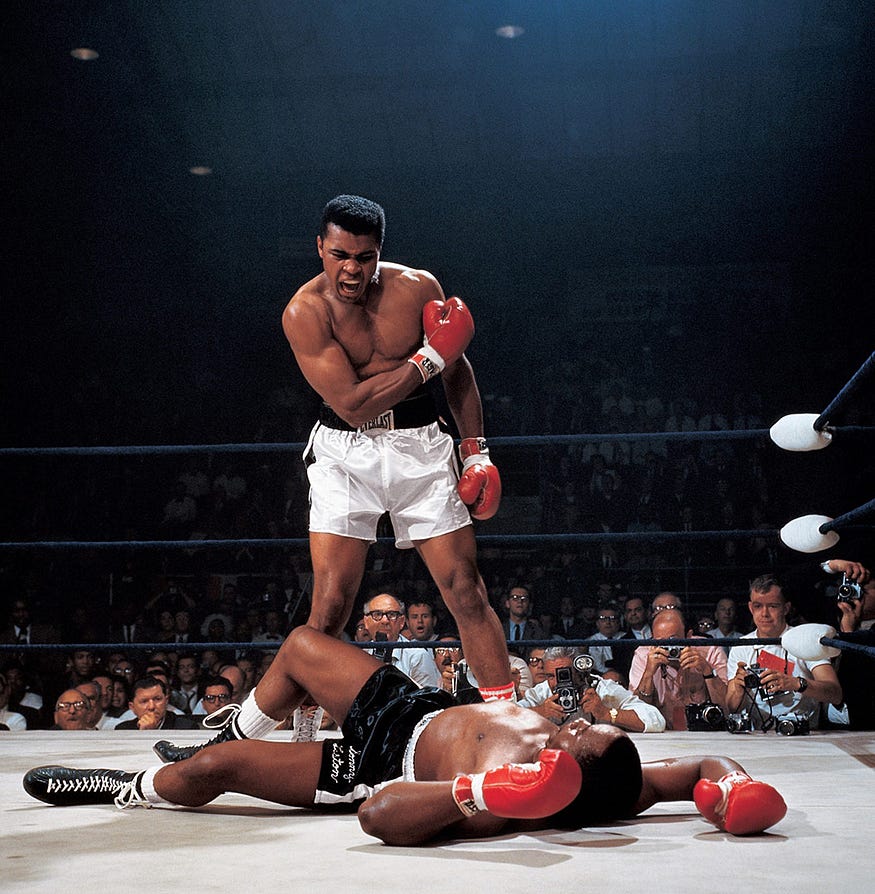
In the past a comparison between myself and Ali would have been unfavorable for me, however, something had changed for me. If a teenage Ali could stare down Sonny Liston, if a middle-aged Ali could defeat the fearsome George Foreman, and if a declining Ali could meet Parkinson\’s and its woeful effects with courage, dignity, and grace, then I could study through a migraine. I could sit these exams, I could pass these exams and I could fight through what was ailing me at that moment to forge the life I had always envisioned for myself.
Basketball had not been a sport I had shown much interest in, that is until the documentary The Last Dance aired on ESPN. Michael Jordan is a polarising figure, there is no disputing this fact. He is potentially the greatest player to ever play the sport, an icon in his own right, and one of the main reasons behind the success of the NBA. Yet his drive to win came at a cost, necessitating the bullying of teammates to drive them to become the players Jordan believed they could be. The documentary shed light on this figure for me and despite the darker aspects of his personality, also caused me to come to admire the man himself.
In studying for the exams, I would often return to the Last Dance and draw inspiration from two instances in particular; the Flu Game and Jordan’s final championship-winning minute in game six against the Utah Jazz during the 1997–1998 season.
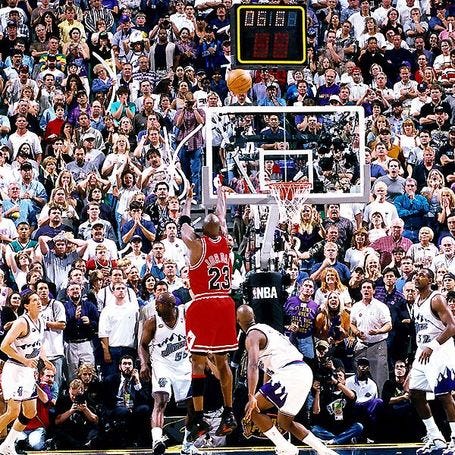
The flu game seems self-explanatory, as the circumstances of such lined up quite nicely with what I was going through at the time. In the final game of the Championship, an exhausted Jordan pulled the Chicago Bulls over the line with a final-minute display that matches any other performance I have witnessed in any sport. His drive to win, unwillingness to bow to circumstance, and win-at-all-costs mentality drove me forward. Allowing me to look deep within myself and draw the required energy and endurance required to finish off what had been a difficult period in my life.
“Look well into thyself; there is a source of strength which will always spring up if thou wilt always look.” -Marcus Aurelius
During the Flu Game, Jordan had spent the hours before the game suffering from the effects of food poisoning, as had been revealed in the documentary, which I cannot recommend highly enough. He was unable to keep any food down, suffered from a severe migraine, and had not slept at all, no one at the time believed he could play that day yet he insisted on doing exactly that.
A shadow of the man he usually was, Jordan had been hooked up to an IV drip immediately prior to the game, yet his performance has since become emblematic of the relentless competitor he was. His final tally was 38 points as he dug deep within himself and found an incomparable inner strength. This point score also included a three-pointer in the final minute to seal a 90–88 win.
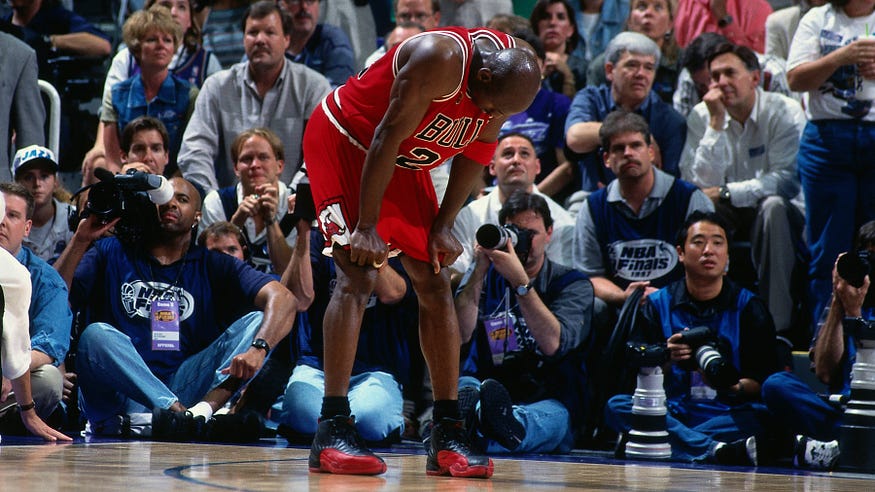
If Michael Jordan could endure the effects of food poisoning and push through it to perform like that, if Jordan could win a championship on Father’s Day a year after the tragic death of his father, and if Jordan could bear the weight of an entire team to hold off the Utah Jazz and win Championship number six in his second threepeat, then I could drive myself ever onwards until I was finally finished.
It has often been repeated that comparison is the thief of joy, yet when times are tough and joy scarce to begin with, comparison can provide the impetus to dig deep within ourselves and find the strength necessary to overcome what we now face. I will never be the athlete either Jordan or Ali was, I will never match the greatness embodied by Aurelius and I will never be forced to overcome what so many other of my heroes have in the past.
Yet from their examples and the subsequent change in perspective that I garner from them, I am capable of assuring myself that the weight I am forced to bear is one I am able to not only endure but also overcome. If there is one thing I have come to learn in my own instance, traveling in the shadow of the giants who have come before me, it is that you can never beat the man who refuses to give up.
Each of us struggles in our own way and what is a mountain to one can seem only a molehill to another, comparison in that manner benefits no one. Yet by looking upon those we admire and allowing that we can attain the virtues they display. Comparison in this manner can aid us in facing our circumstances with courage and strength, becoming better and more capable of facing the next challenge we may be presented with.
We are often our own harshest critics, right now though above all else it is worth taking the time to give ourselves credit and cease underestimating the well of strength within all of us. That will emerge whenever we need it most, should we continue to seek it out and in the process refuse to bow to circumstance. We so often admonish ourselves and fail to acknowledge the sheer capacity of the average person to endure the hardest of times.
Oftentimes we exaggerate what we face while simultaneously making ourselves feel small and helpless in the face of what is yet to come. By drawing upon the strength of those who have trod the paths of sacrifice, suffering, and solitude in the past. We can come to fully understand the strength that we are fortunate enough to possess when the night is at its darkest, allowing us to endure and overcome the difficulties that seem so insurmountable at that moment in time.
“People have always been good at imagining the end of the world, which is much easier to picture than the strange sidelong paths of change in a world without end.” -Rebecca Solnit



